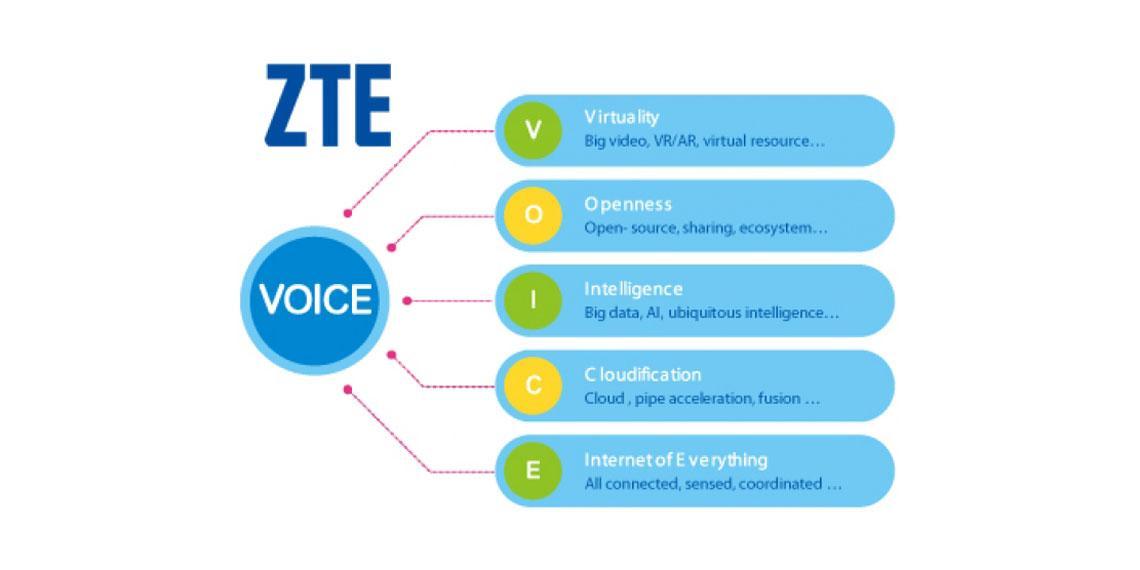ZTE has published a white paper setting out the strategy and vision that it says will guide the company for the next five years. It is based on five trends to which ZTE has given the acronym VOICE: Virtuality, Openness, Intelligence, Cloudification and internet of Everything.
Virtuality is the integration of the physical world and the virtual world with enhanced experience through big video, VR and AR. Openness is the transition from the traditional competition-based business model to close collaboration on an open basis. Intelligence is the intellectualization of all things, enhanced interaction and growing intelligence on multiple levels. Cloudification means that cloud platforms are the basis for enabling the digital economy.
ZTE says that, based on the analysis of the five trends of VOICE, 'the next five years will be critical in the ongoing global economic transformation towards an open, sharing, and digital economy '¦ [impacting] all areas of our lives.'
ZTE calls the strategy its M-ICT 2.0 strategy and says it is 'designed to help businesses seize opportunities in an economy defined by the emergence of the sharing economy and the vast use of peer-to-peer networks, and dependent on the pervasive range of cloud computing platforms and services.'
It says the five trends encapsulated in the acronym VOICE 'will drive innovative collaboration and concurrent advances across various fields.'
The white paper gives particular emphasis to the sharing economy. 'With the boundaries of corporations and even whole industries becoming more blurred, open collaboration and sharing will become mainstream and propel a major shift in business models,' ZTE says.
'The emergence of the sharing economy and massive use of peer-to-peer networks has shown the way forward for businesses of all sizes. This sharing economy is dependent on the ability to innovate and execute at speed, which is built on a model of openness and collaboration.
'The surge in successful businesses that utilize the sharing economy model has proved that almost everything, including devices, resources, capabilities, and software, can be shared across people, companies and industries.'
In a traditional economy, ZTE says, 'resources and capabilities are separated and are closed within individual enterprises and persons, and thus efficiency is very low.' But in a sharing economy, 'the borders among resources and enterprises are blurred and thus idle resources can be effectively redeployed and integrated to achieve higher collaboration efficiency.'
ZTE's white paper, M-ICT 2.0: VOICE for a Digital Future, is available here.








